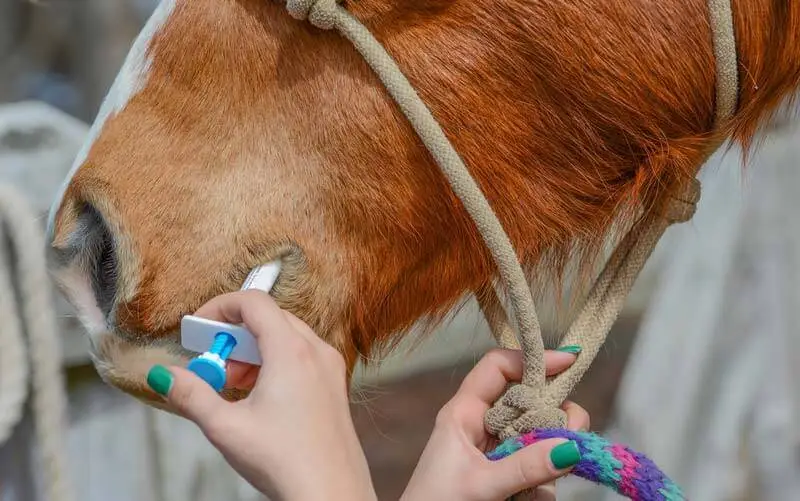How often should I vaccinate my horse?
Vaccination is the easiest way to safeguard your horse against potentially deadly diseases. While routine vaccination should begin from three months of age, there will be some variation from horse to horse, depending on their history.

How often should I vaccinate my horse?
The First Vaccination
Following birth, most foals will receive immunity from their dam by consuming colostrum (as long as the mare is up to date with her vaccinations), rich in colostral antibodies, within the first two hours. These antibodies will provide your foal with instant and potent immunity for its first three months of life.
Vaccinating your mare during pregnancy is critical to build up antibody levels. To learn more about what vaccines your mare should receive, click here.
Routine Vaccination
As your horse grows, vaccination should become part of their preventative health care, alongside worming, teeth, and hoof care. For this article, we’ll focus on Tetanus, Strangles, Equine Herpes Virus, and Hendra Virus – which can be avoided with routine vaccination.
Tetanus Vaccination
The risk of Tetanus is high for any unvaccinated horse, even if they never leave your property. Horses are injury-prone and Tetanus may infiltrate even the smallest puncture wound, leaving your horse susceptible to a potentially fatal neurotoxin.
To protect against Tetanus, every horse needs an annual booster.
However, if your horse is currently unvaccinated against Tetanus, you should follow the below schedule:
- First dose – Equivac 2-in-1 or Equivac T
Four-week interval
- Then a Second dose – Equivac 2-in-1 or Equivac T
12 month interval
- Then a Booster dose – Equivac 2-in-1 or Equivac T
Every 12-month interval
- Annual booster – Equivac 2-in-1 or Equivac T
For more information about Tetanus vaccination, click here.
Strangles Vaccination
Any horse may contract Strangles, however the risk is greatest for young horses, particularly when housed in groups. A highly contagious upper respiratory disease, Strangles results in a distressing fever that can rapidly spread from horse to horse along with extremely enlarged lymph nodes around the throat region and a thick nasal discharge.
To protect against Strangles, every horse needs a booster every 6 months.
However, if your horse is currently unvaccinated against Strangles, you should follow the below schedule:
- First dose – Equivac 2-in-1 or Equivac S
2-week interval
- Then a second dose – Equivac 2-in-1 or Equivac S
2-week interval
- Then Third dose – Equivac 2-in-1 or Equivac S
6 month interval
- Annual booster – Equivac 2-in-1 or Equivac S
For more information about Strangles vaccination, click here.
Equine Herpes Virus Vaccination
A highly contagious and rapidly spreading disease, with five known subtypes, Equine Herpes Virus has no cure, so vaccination is imperative. When Equine Herpes Virus is detected, strict quarantine, antibiotics, and anti-inflammatories are the only options. But, the virus can still be deadly. The most important strains are EHV1 and EHV4 which are the respiratory form and the reproductive form. The vaccine covers both of these forms. A regime is available depending on whether your horse is being covered for the respiratory form or is in foal.
To protect against Equine Herpes Virus, every horse needs an annual booster.
For more information about Equine Herpes Virus vaccination, click here.
Hendra Virus Vaccination
When detected, Hendra Virus has a 100% mortality rate for horses as any infected horse must be humanely euthanized to prevent its spread to other horses and humans. Vaccination against Hendra Virus is the only method to protect your horse against this deadly disease.
To protect against the Hendra Virus, every horse needs an annual booster.
However, if your horse is currently unvaccinated against Hendra Virus, you should follow the below schedule:
- First dose – Equivac HeV
3-6 week interval
- Then a Second dose – Equivac HeV
6 month interval
- Then a Third dose – Equivac HeV
12 month interval
- Then Annual booster – Equivac HeV
For more information about Equine Hendra Virus Vaccination, click here.



